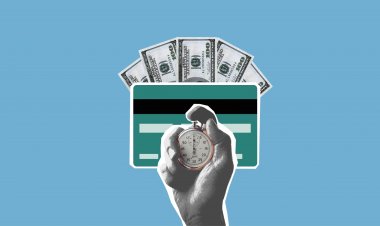Planning Your Household Budget on a Limited Income
Discover effective strategies for planning and managing your household budget on a limited income. Learn how to prioritize expenses, set financial goals, and build financial stability for a brighter future.

Managing a household budget can be challenging, especially when you have a limited income. However, it's essential to remember that regardless of your financial situation, effective budgeting can help you make the most of your resources and achieve your financial goals. In this blog, we'll explore strategies for planning your household budget on a limited income and making every dollar count.
- Assess Your Income
The first step in creating a budget is to determine your monthly income. This includes your salary, any additional sources of income, government benefits, or any financial support you receive. It's crucial to have a clear picture of your total income to create a realistic budget.
- Track Your Expenses
Next, keep a record of all your monthly expenses. This should include everything, from fixed expenses like rent or mortgage payments, utilities, and transportation costs to variable expenses like groceries, entertainment, and dining out. Tracking your spending for a few months will give you a better understanding of where your money is going.
- Prioritize Essential Expenses
On a limited income, it's vital to prioritize essential expenses. These include housing, utilities, food, and transportation. Ensure that these costs are covered before allocating funds to discretionary spending.
- Create a Budget
With a clear understanding of your income and expenses, it's time to create a budget. Allocate specific amounts to different categories, such as housing, groceries, debt repayment, savings, and discretionary spending. Be realistic and avoid overspending in any category.
- Reduce Discretionary Spending
To make your budget work on a limited income, consider ways to reduce discretionary spending. This may involve cutting back on non-essential items like dining out, entertainment, or subscription services. Look for free or low-cost alternatives for entertainment and leisure activities.
- Set Financial Goals
Even on a limited income, it's essential to set financial goals. These could include building an emergency fund, paying down debt, or saving for a specific purpose like a vacation or retirement. Allocate a portion of your budget to these goals to ensure you're making progress.
- Look for Additional Income
If possible, explore opportunities to increase your income. This could involve taking on a part-time job, freelancing, or selling unused items. Any additional income can provide a welcome boost to your budget.
- Build an Emergency Fund
Financial emergencies can happen at any time, and having an emergency fund is essential. Aim to save a small portion of your income each month to build up this fund gradually.
- Avoid High-Interest Debt
High-interest debt can be particularly burdensome on a limited income. Prioritize paying down high-interest debts to save on interest costs and free up more money for your budget.
- Periodically Review and Adjust
Your financial situation and needs may change over time. Periodically review your budget and make necessary adjustments. This flexibility is essential for long-term financial success.



























